The Role of AI in Modern Digital Marketing
You're probably wondering how AI in digital marketing can boost your campaigns. Discover the most recent advancements in this field.
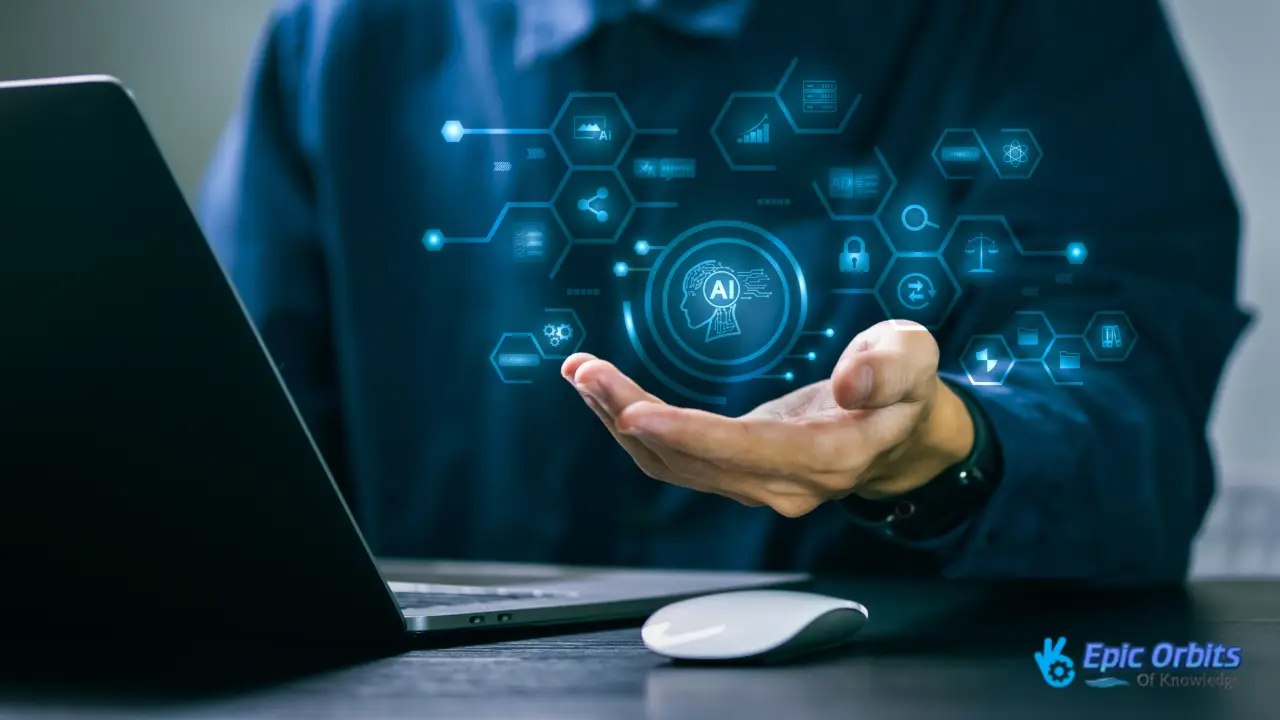
Experts predict that the global value of AI marketing will exceed $1.5 trillion by 2030. This shocking number shows how much the marketing world is changing. Even if you don’t work directly with AI, you probably already feel its effects.
A recent Fortune/Deloitte poll indicated that 79% of CEOs think generative AI would make things run more smoothly, and 52% view it as a chance to develop. It’s not just about using the newest technology; it’s about changing the way organizations engage with their customers, look at data, and provide content that people want to read.
The AI Revolution in Online Marketing
As AI technologies become more important to marketing tactics, you are seeing a giant change in digital marketing. Cloud computing, natural language processing, and deep learning, among other new technologies, have enabled new applications of AI. Marketers today use AI to write content, plan campaigns, boost conversion rates, predict outcomes, and make the customer experience better.
1. How AI is Changing the Way We Market
The use of AI in marketing has risen at an unprecedented pace. Businesses are rushing to put in place anything from simple automation to advanced predictive analytics. This shift involves not only implementing new technologies but also fundamentally altering the creation and execution of marketing strategies. AI lets you rapidly look at a lot of data, tailor your interactions with customers, and guess what will happen in the market.
- Tools driven by AI are doing jobs that used to take whole departments, giving you more time to be creative.
- The market for AI marketing tools is growing quickly, with new options coming out all the time.
2. AI’s Rise in the Marketing Field
The trends are not slowing down, and AI is becoming a key part of marketing. Businesses that use AI are doing better than their competition. Companies must utilize these technologies to stay competitive, as the rise directly correlates with the use of AI.
- AI is at the forefront of today’s marketing world, which is quite different from what it was five years ago.
- AI is going to keep being a big part of marketing; therefore, businesses need to be ready to change.
Important Advantages of AI in Online Marketing
AI is the main focus of digital marketing right now, and it’s not just making campaigns better; it’s changing how you connect with customers. Adding AI to your marketing plan has several advantages that may improve many parts of your organization.
Chatbots powered by AI are becoming more and more popular for giving customers quick and helpful service. These virtual assistants can answer common queries, handle orders, and provide specific product suggestions, which greatly improves the experience for customers.
Marketers can leverage AI’s ability to quickly and accurately analyze large amounts of data to gain valuable insights. This enables smarter decisions, more personalized marketing, and improved outcomes overall. AI enhances personalization through customer segmentation and tailored recommendations, leading to higher customer engagement and loyalty. Its capacity for rapid and precise data analysis supports better decision-making and campaign optimization. Additionally, automating repetitive tasks and streamlining processes saves time and resources, allowing marketers to focus more on strategic planning and creative work.
AI gives you back valuable time to work on strategy by automating boring and repetitive marketing duties. Your marketing team can do things like look at how well a campaign is doing, make the most of ad spending, and make reports in just a few minutes instead of days. AI will make your marketing procedures more efficient, so you’ll get the same results as a much bigger workforce without the extra expenditures and management issues.
AI can now help you figure out which projects are worth your time and money, so you can use your resources more wisely. AI in marketing saves time not just by speeding things up but also by making them smarter.
Creating and improving content using AI
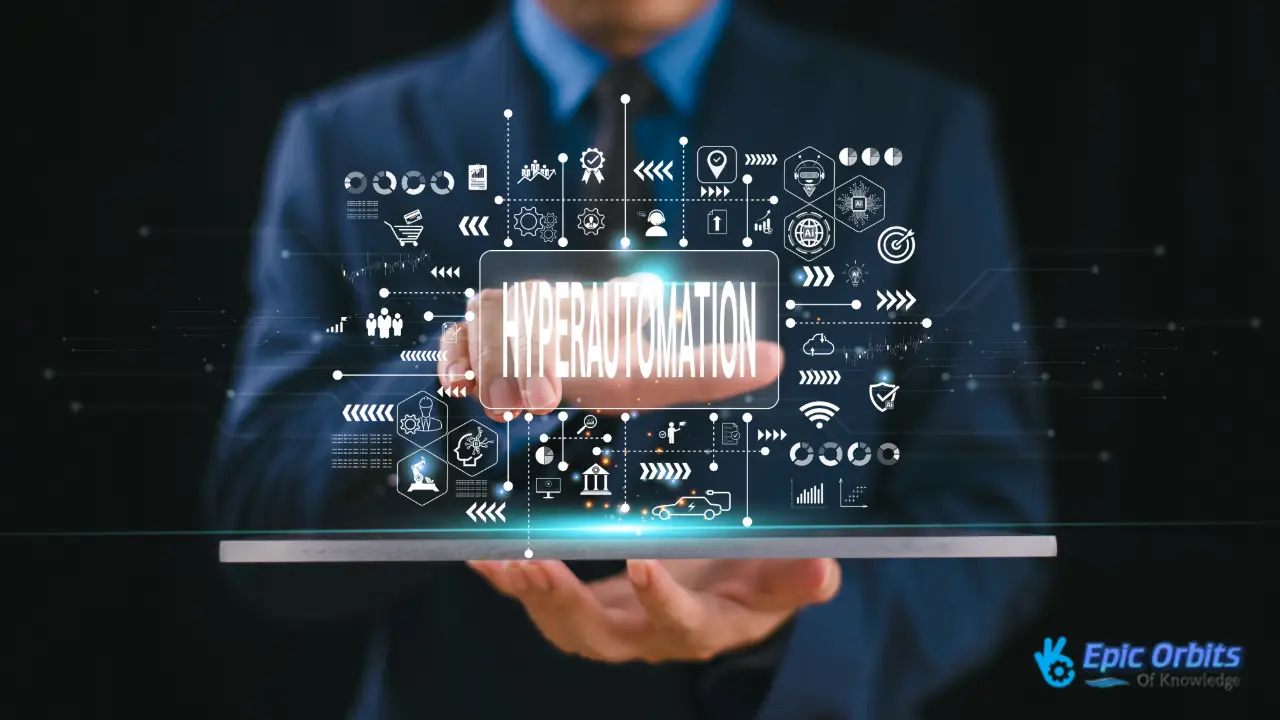
AI-powered tools make it easier to create and improve content. AI makes it possible to rapidly and easily create a lot of high-quality material, which would take a lot of time and effort to generate by hand. You may use methods like sentiment analysis to combine customer feedback and get useful information.
1. Making Blog Posts and Articles
AI-powered systems can write well-organized blog posts and articles for you, which will help you keep up with the internet’s need for new information. These programs may look at the best material and recommend changes to make sure your content is search engine friendly.
For example, AI technologies can tell you which themes and formats will work best, so you can spend less time worrying about keyword density and more time creating content that is really useful.
2. Making content for social media
You may also utilize AI to make intriguing social media posts, including coming up with intriguing titles and proposing relevant hashtags. AI helps you keep up with the newest trends and tactics used by other firms by looking into their competitive intelligence.
This lets you generate better results from your marketing initiatives by targeting the right people and making better content.
3. Making content better for SEO
AI-powered SEO tools look at the best material on the web and recommend changes that will help both search engines and users. AI keeps your content strategy up-to-date and effective by keeping up with changes in algorithms and trends.
Some of the advantages of AI for optimizing content are:
- AI-powered SEO can prevent your content from languishing on Google’s second page.
- AI technologies go beyond keyword stuffing by proposing changes that make your content easier to read and help it rank higher in search engines.
- Before you start producing content, predictive analytics may help you figure out which techniques will work best.
- AI takes care of technical optimization so you can concentrate on making useful content.
- AI technologies help you keep your content strategy up-to-speed with the newest developments in search.
AI in Customer Service and Engagement
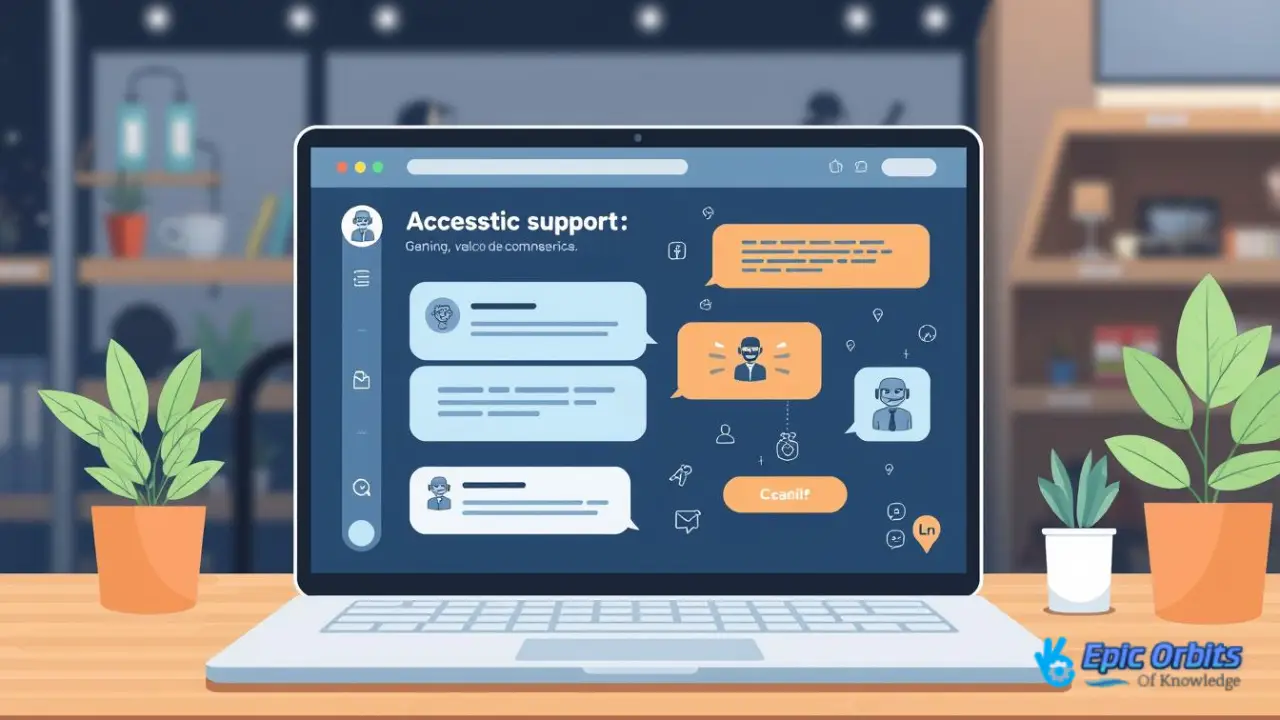
AI plays a diverse and increasingly crucial role in modern consumer interactions. Companies are using AI to improve how they connect with customers, making it more personal and efficient.
1. Virtual Assistants and Chatbots
AI-powered chatbots and virtual assistants are changing the way customer service works. They promptly respond to consumer inquiries, facilitating the swift and effective resolution of problems. For example, many businesses are adopting chatbots to help customers around the clock, which makes them happier.
2. Interactions with customers that are unique to them
AI lets companies communicate with customers in more intimate ways. AI systems may look at client data and offer items or content that they are likely to appreciate. This not only makes the consumer experience better, but it also boosts conversion rates and client loyalty.
AI-powered recommendation engines, like the ones Amazon and Netflix employ, look at what consumers have done in the past and what they like to propose things or entertainment they would like. Customers feel appreciated and understood because of this individualized approach.
Some important advantages of using AI to interact with customers are
- You know that moment when an online business suggests something you didn’t realize you needed? That’s AI making interactions with customers more personal.
- With AI monitoring consumer journeys across many touchpoints, you can develop personalized experiences.
- People are more likely to interact with your business when they feel understood. AI helps you figure out what each person wants and how to meet those needs.
AI allows organizations to have personalized conversations with thousands of clients at once, making each feel special.
AI in Digital Marketing Data and Information
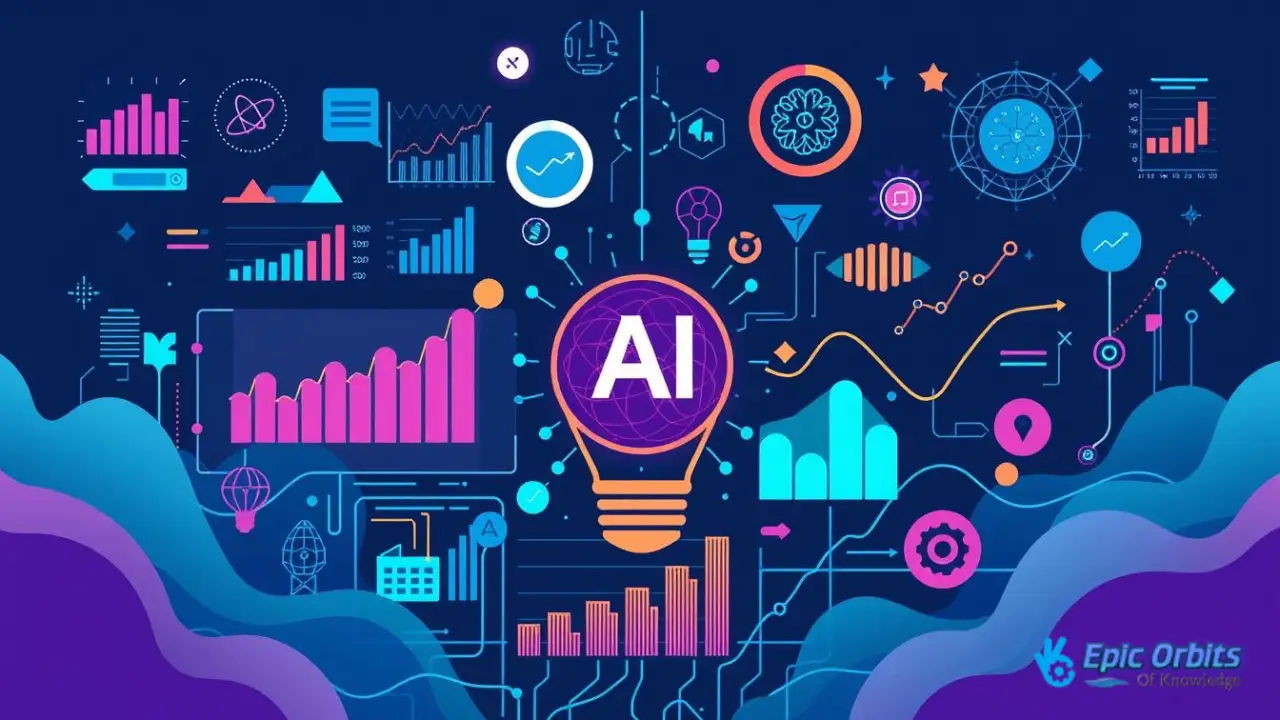
AI illuminates the complex landscape of digital marketing, guiding organizations toward making better decisions. AI marketing analytics solutions are changing the way firms learn about their customers and get useful information.
AI’s capacity to do predictive analytics lets organizations identify future trends, which helps them remain ahead of the competition. AI can figure out how likely it is that particular marketing methods will work by looking at past data and the state of the market right now.
An AI-powered study of client behavior might provide you startling information that can change the way you sell your business. For example, you could find that the people who love your high-end product the most are budget consumers who are treating themselves to one luxury item. With AI keeping an eye on customers’ digital footprints across platforms, you’ll see patterns in their behavior that show why certain marketing efforts work better than others.
The information you get from analyzing consumer behavior is useful because it lets you guess what customers will want before they ever look for it. AI shows the path consumers took to buy anything, including the things they looked at, the ones they gave up on, and the ones they eventually bought. Such data provides us with information about how customers make decisions that they may not even be aware of.
Using AI to improve advertising and campaigns
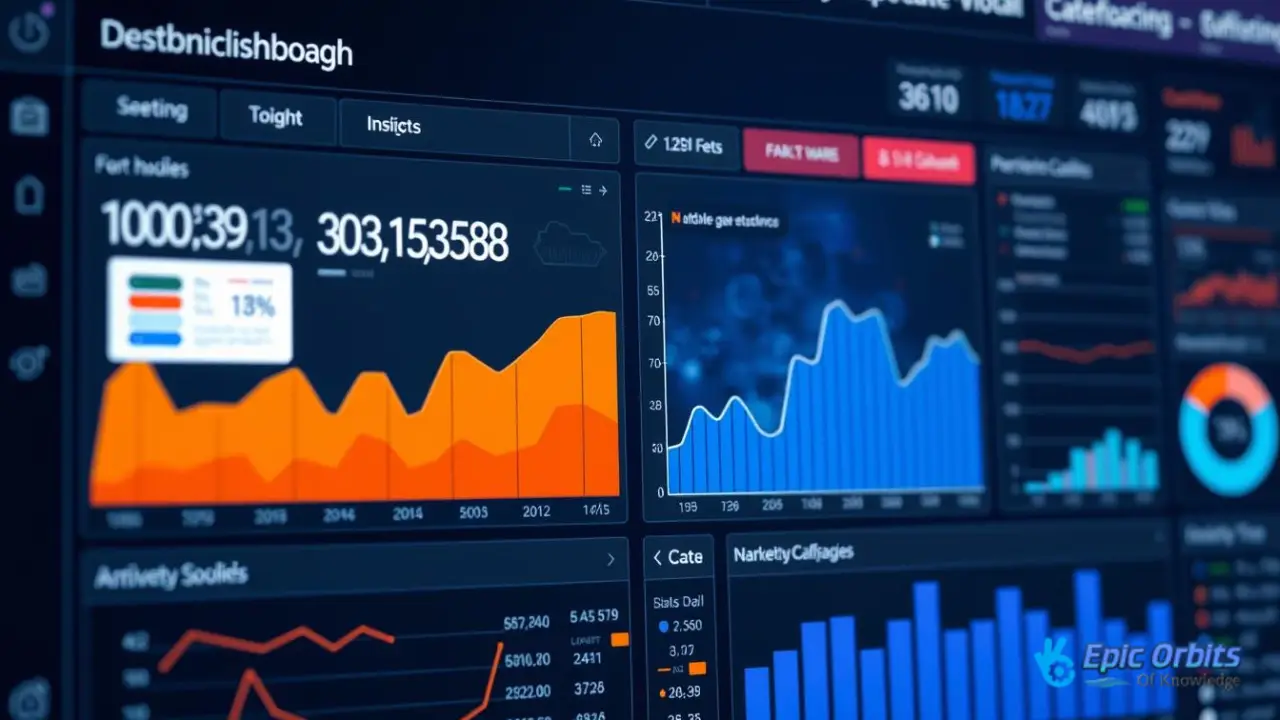
You’re going to learn how AI can change the way you advertise and improve your campaigns. AI is more than simply a tool; it’s a game-changer for advertising. You may greatly improve the effectiveness of your campaign and get a greater return on investment (ROI) by using AI advertising optimization services.
1. Bidding and placing ads automatically
AI can handle the bidding for pay-per-click (PPC) campaigns, changing bids in real time to get the greatest results. This degree of automation cuts down on the need for manual work, which saves you time and money. AI automatically moves money from advertisements that aren’t doing well to ads that are doing well, so your campaigns change in real time. This dynamic technique works far better than manual optimization, which may take a long time and be hard work.
2. Tracking and improving performance
AI performance monitoring stops you from having those awful times when you find out you’ve been optimizing for the incorrect metrics. AI keeps you on the right road by constantly keeping an eye on what is critical. AI will look at your advertising data across platforms and help you find trends in how well your ads are doing that you wouldn’t have seen otherwise. For instance, you might discover that displaying your advertising alongside certain types of content, such as cat videos, enhances its effectiveness.
There are other advantages of using AI in advertising. While you sleep, AI monitors the success of your campaign across various time zones and platforms, implementing small adjustments that can lead to significant improvements. You no longer have to wait weeks to have enough data to make significant changes. AI can find statistically significant patterns quicker than you can say “too small of a sample size,” which makes it possible to test and improve things quickly.
The Best AI Marketing Tools You Should Be Using

To remain ahead in the competitive world of digital marketing, you need to use the best AI marketing technologies. These technologies not only make your marketing tasks easier, but they also make your efforts more efficient overall.
AI-powered tools for making content are changing the way you make it. WordLift and Content Blossom are two tools that may help you create better content, propose changes, and optimize it so that more people will read it.
AI-powered analytics solutions provide you a lot of information about how customers act, which helps you make choices based on facts. Mixpanel and Google Analytics are two well-known programs that provide extensive analytics features.
AI-powered chatbots and virtual assistants are changing the way businesses interact with customers. Drift and Intercom are two tools that let you talk to customers in a way that is unique to them. This makes them happier and more loyal.
HubSpot, Marketo, and Zapier are some of the best marketing automation platforms for making repetitious jobs easier. They assist in nurturing leads, offer personalized content, and adjust marketing strategies based on performance metrics.
Do you still need to write follow-up emails and manually plan social media posts? That’s like using a typewriter in a world full of computers—cute but not very useful. While you work on strategy, AI marketing automation technologies take care of these boring activities.
Your marketing efforts operate like a well-oiled machine with these AI-powered automation solutions. They nurture leads, provide tailored content, and change strategies based on performance data without you having to be there all the time.
You may make your marketing procedures far more efficient by adding these AI marketing technologies to your plan. Your marketing efforts become more focused, your customers are more interested, and your total marketing performance is better.
Problems and limits of using AI in digital marketing
While AI has the potential to significantly transform digital marketing, it also presents several challenges that require attention. When considering how to use AI in your marketing plan, you may encounter several issues that could hinder success.
1. Concerns about data privacy and ethics
One of the biggest problems is figuring out how to deal with the complicated world of data privacy and ethical issues. It might be difficult to make sure you obey the rules when using AI for targeted marketing because of laws like GDPR and CCPA. As
The goal of using AI in targeted marketing is to transform data into information and then convert that information into actionable insights.
Companies must be transparent about data use and build AI systems with privacy in mind. This not only helps you avoid getting in trouble with the law, but it also helps you gain your consumers’ confidence.
2. Problems with integration and implementation
Companies may face difficulties integrating AI with their existing systems and processes, particularly if they rely on legacy systems not designed to work with modern AI technologies. This can lead to compatibility issues, making it challenging to implement AI solutions smoothly.
Data privacy concerns can result in non-compliance, while workforce resistance may slow down AI adoption. To overcome these challenges, companies should upgrade their infrastructure, ensure transparent data usage, and provide training and development for employees. Fostering a culture of continuous learning and adaptability will help businesses effectively leverage AI in their digital marketing efforts.
Conclusion
AI has revolutionized the rapidly evolving field of digital marketing. Using AI in your digital marketing plan is not simply a fad; it’s a must if you want to remain relevant and be successful in the long run.
It’s evident that the future of marketing isn’t just coming; it’s now here, as you’ve looked into the AI marketing world. As AI advances, the gap between early and late adopters will widen. Finding the perfect mix between AI efficiency and human innovation will be key to your future marketing success.
The most intriguing thing about AI in marketing is what it will make possible in the future, including highly tailored experiences and predictive models that can see changes in the market. You are trained on data up to October 2023. By using AI, you can interact with your audience in more profound ways and reach your marketing objectives more accurately and effectively, which will help your marketing methods work in the long run.



